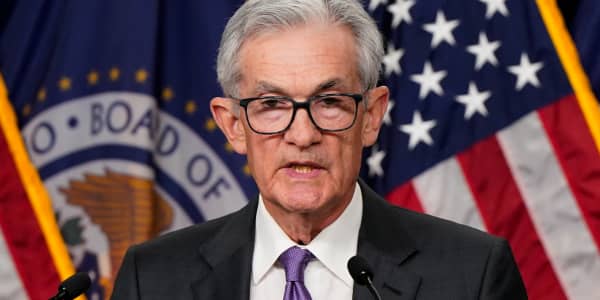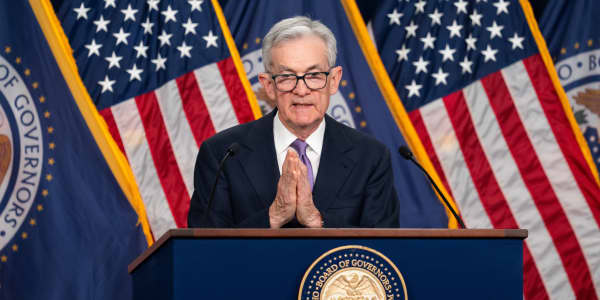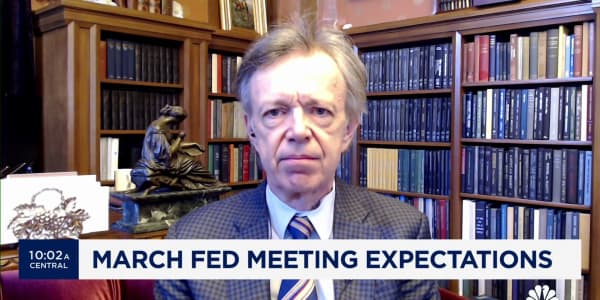
As the Fed meets in Jackson Hole, Wyoming, to discuss how to make monetary policy, many on Wall Street are convinced there isn't any blueprint to do so.
The CNBC Fed Survey found that 60 percent of respondents say the central bank lacks a framework for deciding on interest rates, with just 24 percent saying they do and 16 percent unsure. Of the 39 respondents, who include economists, fund managers and strategists, 47 percent say current policy is made more on the latest economic report, and 38 percent say it's based on the Fed's own professed measures, which change in the medium-term outlook.
"The Fed has failed to come to a consensus on communications," Diane Swonk, founder of DS Economics, wrote in response to the survey. "The blow to credibility is leaving markets pricing a form of infinite easing." Swonk worries about the Fed destabilizing the market by raising rates and yet creating bubbles in financial markets if it doesn't.
Added Joel Naroff, founder of Naroff Economic Advisors: "When you base policy on current data that are volatile, you get volatile policy statements and that is not a way to run anything."
Every year, the Federal Reserve Bank of Kansas City hosts dozens of central bankers, policymakers, academics and economists from around the world at an annual economic policy symposium in Jackson Hole.
The CNBC survey shows a high degree of frustration and Fed criticism among a group that normally supports or at least understands its policies. "Being on constant Fed Watch has become so exhausting," writes Peter Boockvar, chief market analyst of The Lindsey Group, who is a persistent Fed critic. "We've been led in so many different directions only to be spun around again that until I see exactly what they do, I'm losing patience in listening to what they say."
At the moment, markets appear to be banking on a continued easy- monetary policy. The average respondent now sees the next hike coming in January, a month later than the previous survey. The fed funds rate is seen rising to just 1.2 percent next year, and the central bank is now forecast to halt its hiking cycle, or reach its terminal rate at 2.29 percent by the fourth quarter of 2018. The Fed's terminal rate is now 3 percent.
But the timing of the next hike is still a matter of debate. Hank Smith, co-chief investment officer of Haverford Investments, said if there's a strong August jobs number, the Fed will hike in September. But Chad Morganlander, portfolio manager of Stifel Nicolaus (Washington Crossing Advisors) said, "The Federal Reserve will not risk unhinging the financial system before the election. Investors should expect the Fed message to change after November."
Respondents don't expect much of a policy surprise from the Jackson Hole meeting. Just over half expect the tone of the meeting to be neutral, while 24 percent worry it could be more hawkish and 16 percent say more dovish.
Jim Paulsen, chief investment strategist of Wells Capital Management, thinks hawkish comments out of the meeting could send bond yields back up to pre-Brexit levels.
The outlook for stocks continues to improve with the S&P now forecast to rise near 2,200 this year and 2,275 next year while interest rates remain low. (It closed at 2,186.90 on Tuesday.) The 10-year yield is forecast to rise to just 1.75 this year and 2.26 in 2016.
The outlook for economic growth weakened slightly this year with GDP now estimated to grow just 1.8 percent this year and 2.2 percent next. Inflation is seen finishing the year well under the Fed's 2 percent target but topping it in 2017. The recession chance in the U.S. declined to just 21 percent but remains elevated in the U.K. and EU.
"The economy continues to perform well and its near-term prospects are good," wrote Mark Zandi, chief economist of Moody's Analytics. "The most serious threat is the persistently slow potential growth."
Respondents say the biggest threat to the U.S. recovery is global economic weakness, a concern that has risen in recent weeks, followed by tax and regulatory policies.





